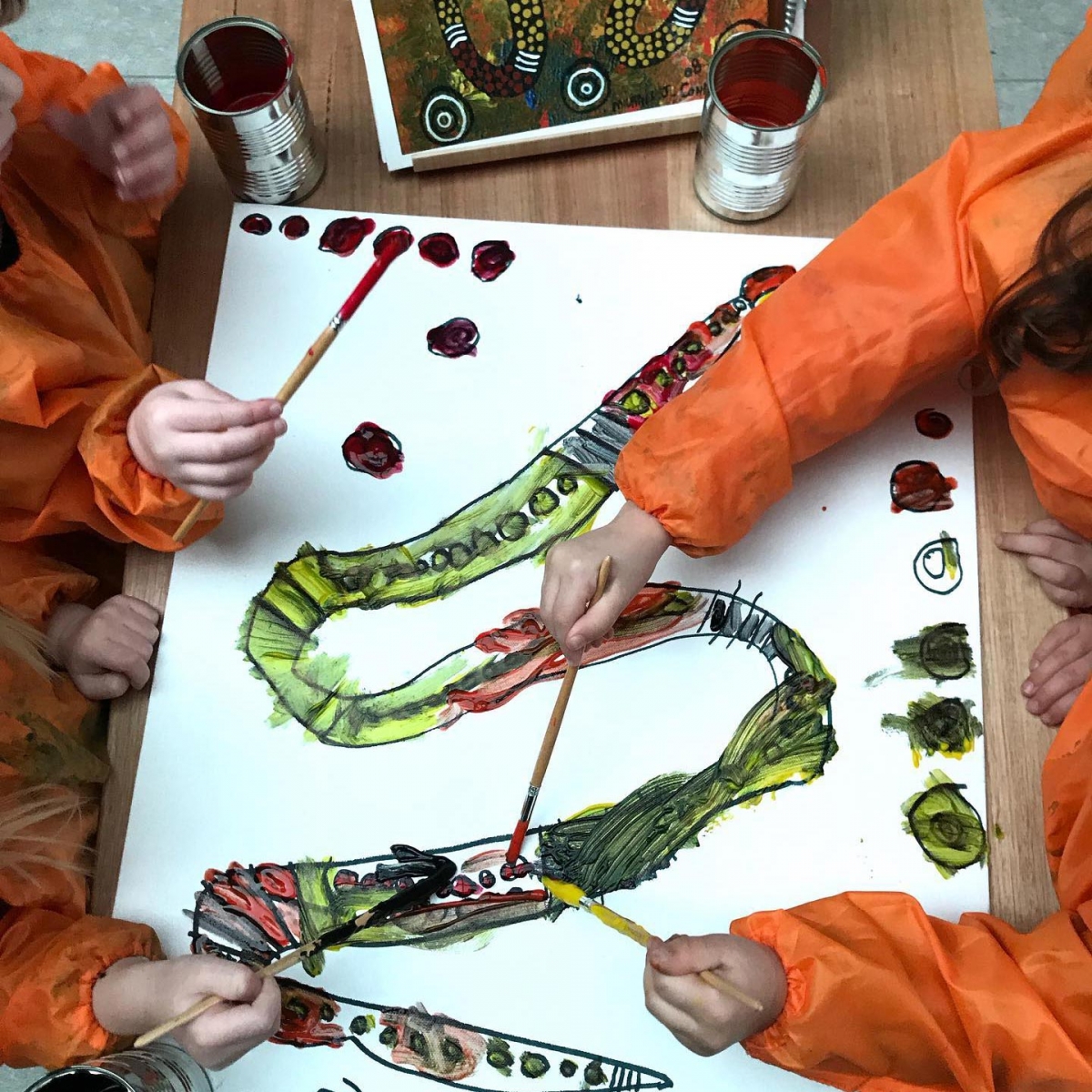Play is such an important part of how a child develops and is the way they make sense of their world. The Reggio Emilia approach views young children as unique individuals who are curious about their surroundings. The children learn through a play-based program focused on their individual interest, strengths and needs.
Our centre is designed to encourage exploration and discovery. The light and bright indoor rooms have community spaces for group projects, filled with stimulating resources, and smaller intimate spaces for quiet play. Items from home, such as real dishware, tablecloths, plants, and animals, contribute to a comforting, “homey” classroom environment. Leafy green outdoor spaces encourage freedom and exploration. Gardening, water and sand play are firm favourites. The whole space is open and free-flowing, a supportive, safe and rich environment nurturing curiosity and offering uninterrupted exploration and learning. This spontaneous play encourages self-expression, communication, logical thinking, and problem-solving.
The Reggio approach follows four major principles.
• Emergent Curriculum. A classroom’s curriculum stems from the particular interests of children. Curriculum topics are derived from talking with children and their families, as well as from things that are known to be interesting to children (puddles, dinosaurs, and so on). Teachers compare notes and observations in team planning sessions to decide which projects would be best suited to children in their classes, what materials will be needed, and how they can encourage parents and the community to become involved.
• In-Depth Projects. These projects are thorough studies of concepts and ideas based on the information gathered about children’s interests. Projects are often introduced to children as adventures and can last anywhere from a week or two to the entire school year. Teachers act as advisors on these projects, helping children decide in which direction they would like to take their research, how they can represent what they learn, and what materials would be best suited for their representations.
• Representational Development. This principal is based on the concept of multiple intelligences. The Reggio Emilia approach calls for the presentation of new ideas and concepts in multiple forms, such as print, art, drama, music, puppetry, and so on. Varied presentations ensure that all children have the chance to understand and connect with the concepts being explored.
• Collaboration. The idea of collaboration is seen as necessary to further a child’s cognitive development. Groups both large and small are encouraged to work together to problem-solve using dialogue, comparisons, negotiations, and other important interpersonal skills. Each child’s voice is heard in order to promote a balance between a sense of belonging to the group and a sense of self.
Fundamental to the Reggio philosophy is Malaguzzi’s powerful image of the child as being “rich in potential, strong, powerful, competent.” Our teachers are encouraged to observe children rather than direct them. Our children are allowed to experiment in their own way, make mistakes and find new solutions. Confident in constructing their own learning, relationships and values they beat to the tune of their own drum, and the results speak for themselves.
Contact our Educational Leader to learn more about how your child could benefit from our centre’s philosophy.

